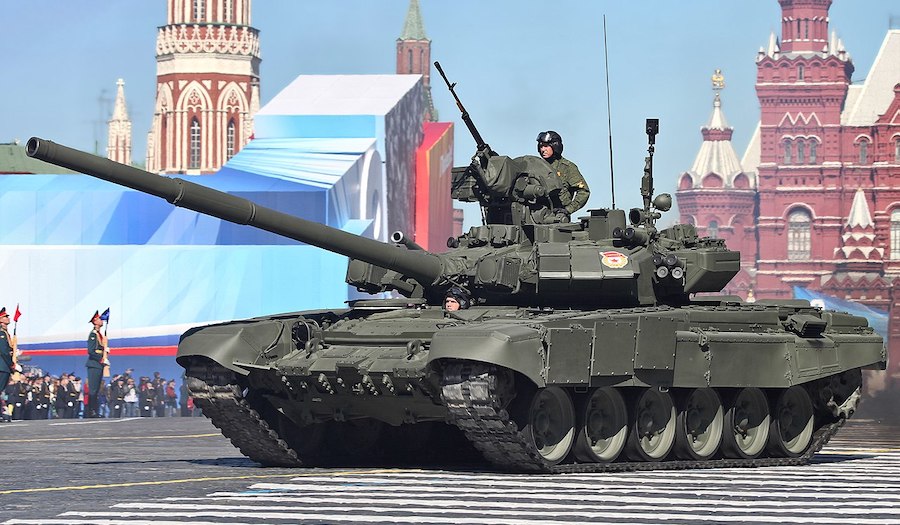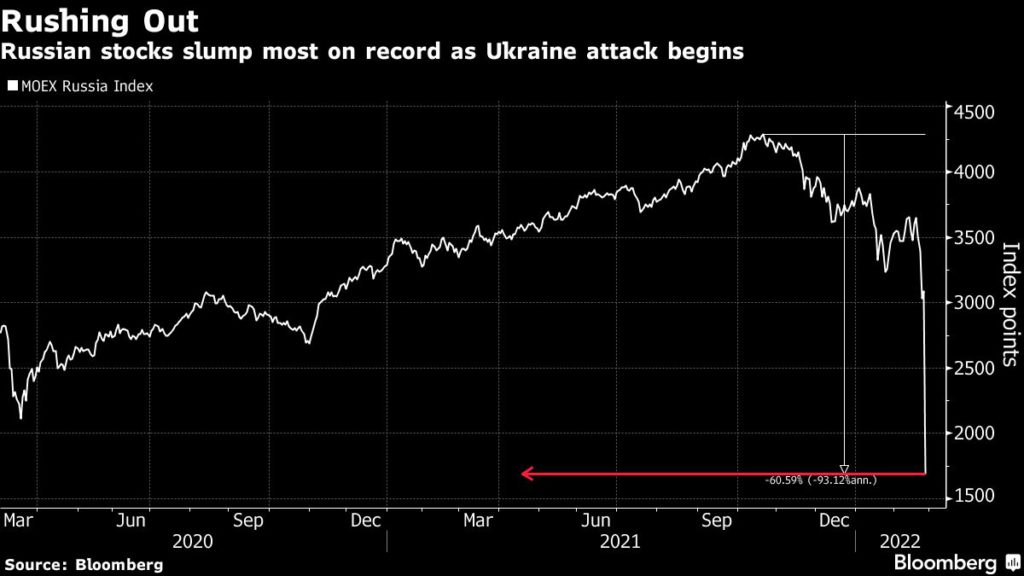
Shares in mining companies with operations in Russia were among the first to feel the impact of Moscow’s wide-ranging attack on Ukraine on Thursday, while oil topped $105 a barrel and investors rushed to buy gold and other safe haven assets.
The local exchange suspended trading in all markets following President Vladimir Putin ‘s announcement of a military operation against Ukraine. Once it resumed, companies shares nosedived as investors braced for the toughest round of Western sanctions yet, wiping out as much as $259 billion in stock-market value.
Alrosa (MCX: ALRS), the world’s top diamond producer by output, lost more than 40% mid-morning, closing 33.7% lower compared to Wednesday’s price. The company has been included in the new sanctions announced by the US Department of the Treasury’s Office of Foreign Assets Control (OFAC), which target mainly banks and energy firms.
Gold miner Polymetal (MCX, LON: POLY) experienced massive losses in all the bourses it trades, finishing the day 35% lower in Moscow. It took the biggest hit on the FTSE 100 index, losing over 46% of its share value to £594 mid-afternoon. That’s below a four-year low of the £605 a share it hit in October 2018.

Polymetal put out a press release indicating that targeted sanctions on the company remained “unlikely”.
“The scope and impact of new potential sanctions (and any potential counter-sanctions) is yet unknown, however they might affect key Russian financial institutions as well as mining companies,” the miner acknowledged.
“Contingency planning has been initiated proactively to ensure business continuity, including selection of key equipment suppliers, liquidity management, debt portfolio diversification and securing sales channels,” it added.
Shares in London-based gold producer Petropavlovsk (LON: POG) were trading near a three-year low by mid-afternoon at £9.43 per piece.
Shares in other Russian miners, including potash producer Uralkali (MICEX: URKA) and Gazprom (MCX: GAZP), the country’s biggest stock by market capitalization, also collapsed on Thursday as the ruble hit its lowest ever level against the US dollar.
The scale of the shock to markets suggests investors had expected Putin to back down.
“You have the panic button being hit right now, I don’t think the market was pricing in the risk of a proper military conflict,” Emmanuel Cau, head of European equity strategy at Barclays, told the Financial Times. “For the time being, it’s hard to see what could be a trigger for the market to stabilise.”
News of Russia’s actions led to sharp declines on stock markets across Europe, with the UK’s FTSE 100 index down more than 3% and Germany’s Dax index falling more than 4.5%. Earlier, stocks in Asia had also collapsed.
The price of gold — considered a haven asset in times of uncertainty — jumped more than 1.7% to its highest since early January 2021.
“Markets are now more adequately pricing in the risk of something horrific happening. That, combined with the uncertainty, is a horrible environment to be in. No one wants risk exposure when that’s floating around,” Rob Carnell, head of Asia Pacific research at ING, said.
Canadian senior miner Kinross Gold’s (TSX: K)( NYSE: KGC) shares were falling slightly this morning in New York, even though it had said on Wednesday its assets in Russia’s Far East, about 7,000 km away from Ukraine, were operating normally.
Russia is responsible for a third of Europe’s natural gas and about 10% of global oil production. With both Ukraine and Russia also big crop producers, wheat and corn prices surged over 5%.
(With files from Bloomberg)
No comments:
Post a Comment